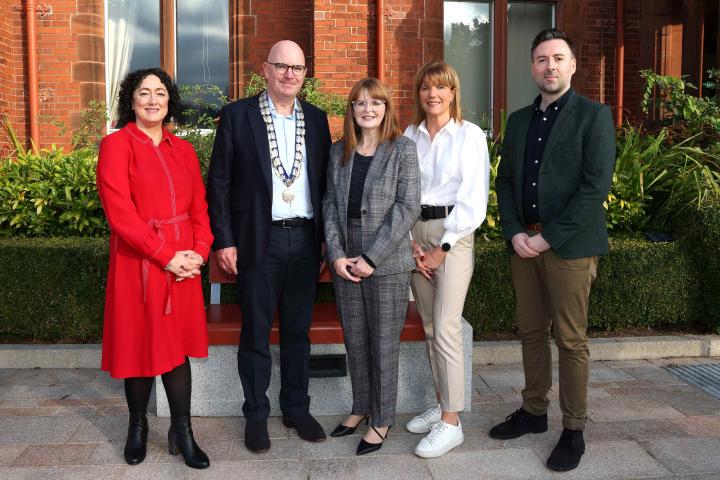Embracing Artificial Intelligence (AI) effectively is crucial if Northern Ireland is to address the productivity shortfall it is currently experiencing.
That was part of the message delivered by Economy Minister Dr Caoimhe Archibald MLA in her keynote speech at today’s Productivity Summit, hosted at Riddel Hall by Belfast Chamber in collaboration with Queen’s University Belfast, Danske Bank and Sumer Northern Ireland.
Speaking to over 150 guests, Minister Archibald outlined that some of Northern Ireland’s strongest sectors - cyber security, data analytics, and software - are “at the cutting edge of the AI revolution” and stressed the need for collaboration between stakeholders and further investment into AI.
Minister Archibald said: “We have lagged behind Britain, and particularly the south of Ireland, on productivity, which is a fundamental driver of living standards. Productivity is complex and we don’t have all the levers we would like, but we have to embrace it effectively if we are to deliver a step change in our economic performance.
“The rise of AI provides a major opportunity to address the productivity gap, offering improved efficiency, better automation, and faster analytics. Indeed, recent findings from our new £16 million Artificial Intelligence Collaboration Centre revealed that AI-driven enterprises could be worth £200 million, employing 2,000 people, in three years’ time.
“The theme of this year’s Productivity Summit was therefore hugely relevant, and I’d like to thank Belfast Chamber for creating the space for this important discussion. I will continue to work with the business community and with academia to ensure that we make the most of AI, and use it to close the productivity gap.”
The Minister also highlighted the benefits that dual market access provides for exporting companies, and stated that exports from the region have increased by 2% - compared to a decline of 9% in Great Britain - over the period of Windsor Framework implementation.
The Productivity Summit brought together business leaders, academics and policymakers to explore the practical application of AI to help businesses increase revenues and drive down costs, thereby improving their productivity.
Other speakers at the event included Dr David Jordan of Queen’s University Belfast (QUB) on the topic of ‘Setting Policy for Government’, Dr Charles Vincent, also of QUB, who spoke about ‘AI, Productivity, Your Edge’, Professor Mark Gillan of ANGOKA on the theme of ‘Use Cases and implementation’, and Peter Trimble of AWS NI who delivered a speech on ‘The Future of AI’. Emma Proctor of Danske Bank and Dr Phil Chambers from Sumer Northern Ireland, meanwhile, took part in an engaging panel discussion.
Reflecting on the success of the Summit, Clare Guinness, Belfast Chamber CEO, said:
“It was clear from this year’s Summit that AI is no longer theoretical - it’s practical, accessible and being used effectively by businesses of every size. Our role is to help organisations navigate that journey and capture the productivity gains that come with it.
“It was fantastic to once again have so many industry experts and thought leaders in the room to share best practices, exchange ideas and collaborate on such an important topic. As the voice for business in Belfast, the Belfast Chamber team is determined to ensure all businesses in the city don’t just watch the AI revolution happen, but instead take their place at the forefront of it.”
Sync NI's Summer 2025 magazine celebrates women in tech across Ireland as we continue to encourage more women to enter the thriving sector and address the current gender imbalance. Read the Summer 2025 Sync NI Magazine online for free here.
Subscribe to the Sync NI newsletter for all the latest technology news, jobs and upcoming events in Northern Ireland.
Visit Sync NI online for the latest technology news in Northern Ireland.
